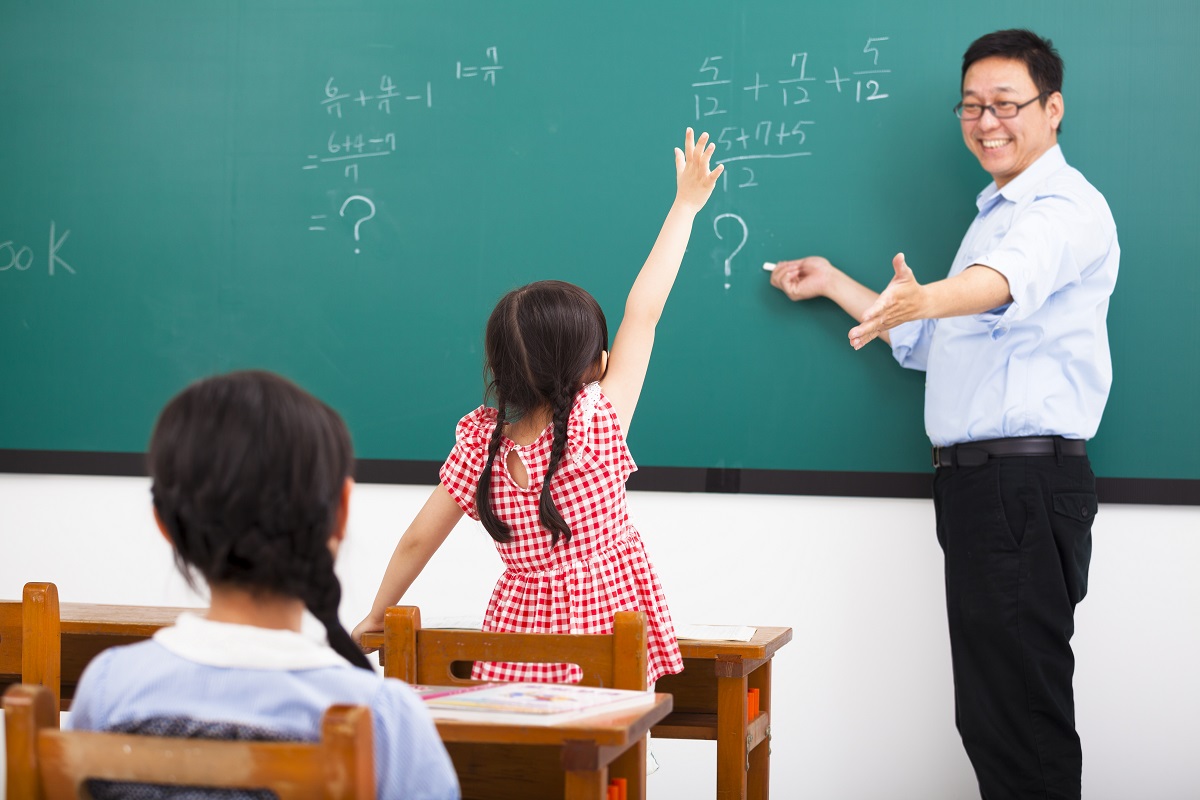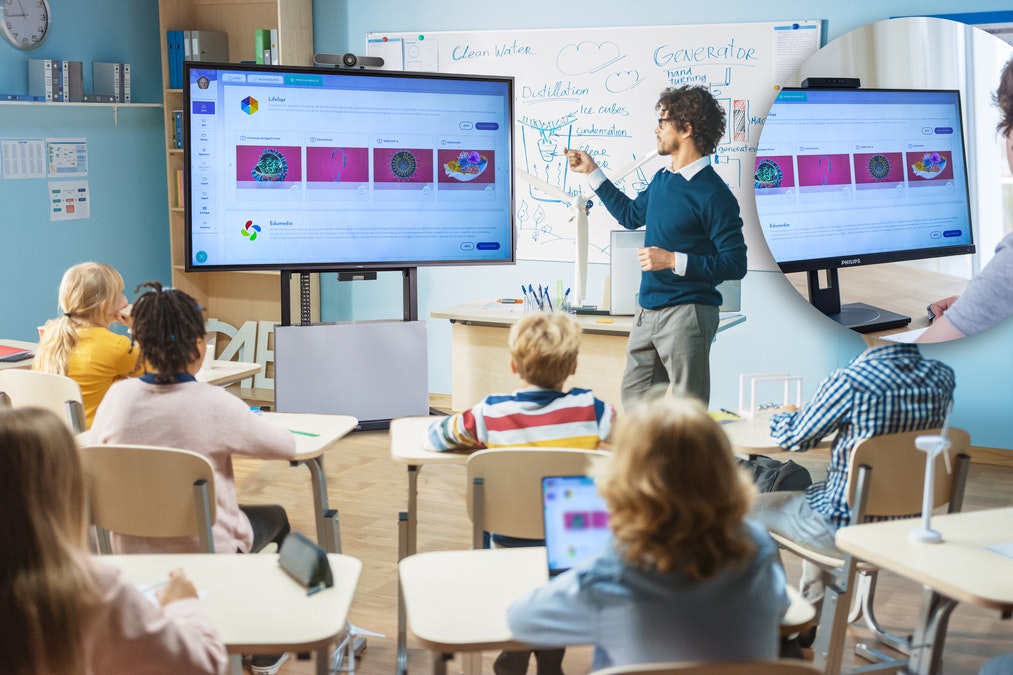Improve Your Child’s Performance with Primary Science Tuition Singapore
Improve Your Child’s Performance with Primary Science Tuition Singapore
Blog Article
Discover the Essential Advantages of Comprehending Primary Science for Young Students
The importance of key science education for young students expands much beyond simple understanding acquisition; it serves as an essential column in developing important skills such as vital thinking, analytical, and imagination. Involving with scientific ideas via inquiry-based and interactive activities not just grows inquisitiveness but likewise lays the groundwork for durable, positive students. As we explore these advantages further, it becomes clear that the ramifications for future academic and individual development are extensive. What certain approaches can instructors use to make best use of these advantages?
Enhancing Crucial Believing Skills
Fostering critical assuming skills in young learners is vital for their cognitive advancement and future academic success. Important reasoning enables youngsters to evaluate information, review proof, and make informed decisions, which are vital skills in today's information-rich culture. By engaging in clinical questions, young learners can boost these skills as they explore concepts through thinking, monitoring, and experimentation.
In key scientific research education and learning, instructors can promote critical thinking by motivating students to ask concerns, formulate theories, and conduct experiments. This hands-on approach permits youngsters to practice problem-solving and create sensible thinking skills. When pupils check out the properties of materials or the concepts of motion, they find out to assess their findings critically and attract verdicts based on evidence.
Furthermore, conversations and collaborative tasks can promote essential thinking by providing opportunities for students to express their ideas, difficulty presumptions, and take into consideration varied perspectives. By developing a helpful atmosphere that values query and reflection, teachers can nurture crucial believing skills that equip young learners to end up being independent thinkers and lifelong learners. Ultimately, enhancing these abilities lays a durable foundation for their future academic endeavors and personal development.
Cultivating Curiosity and Expedition

Main science education and learning provides an organized setting where young students can explore numerous phenomena via hands-on experiments and observations. By permitting them to connect with materials and take part in inquiry-based learning, instructors produce opportunities for youngsters to formulate theories, test their concepts, and reason. Such experiences nurture a feeling of wonder and excitement about scientific research.

Structure Confidence in Trouble Fixing
Building confidence in analytic is a vital component of key scientific research education that encourages young students to come close to challenges with resilience and creative thinking - primary science tuition Singapore. They create essential skills in important thinking and analysis when kids are urged to engage with clinical ideas via hands-on tasks and inquiry-based discovering. This procedure not just enhances their understanding of scientific concepts yet also cultivates a sense of ownership over their learning
To construct self-confidence, educators must develop a helpful environment where blunders are deemed chances for development as opposed to failures. This motivates pupils to take dangers and check out numerous remedies to issues. By giving scaffolding and advice, instructors can help pupils navigate complex jobs, gradually enhancing their freedom in problem-solving circumstances.
Additionally, collaborative discovering experiences, such as team projects or experiments, can better boost trainees' self-confidence as they discover to express their thoughts and listen to go to my site others' perspectives. These interactions nurture social abilities and reinforce the idea that problem-solving is usually a cumulative endeavor. Ultimately, growing confidence in problem-solving prepares young learners for future academic difficulties and equips them with the tools needed for lifelong discovering.
Motivating Creativity and Technology
In the world of primary science education and learning, motivating creativity and technology is vital for cultivating a vibrant discovering environment. By cultivating a culture where young learners can explore ideas and experiment easily, teachers assist students establish essential thinking skills and an enthusiasm for exploration. Creative thinking in scientific research encourages youngsters to ask concerns, create hypotheses, and take part in hands-on activities that promote their creativity.
Integrating open-ended projects and inquiry-based discovering into the curriculum allows trainees to reveal their one-of-a-kind viewpoints and services. When charged with resolving a trouble relevant to their environment, pupils can conceptualize numerous methods, leading to creative end results that showcase their originality. This not just deepens their understanding of scientific concepts yet also infuses a feeling of possession over their learning procedure.
Moreover, imaginative science education and learning supports collaboration amongst peers, as students often share ideas and develop on each other's understandings - primary science tuition Singapore. This collaborative spirit advertises not just advancement yet likewise important social skills. Therefore, by prioritizing creative thinking and innovation in main scientific research education and learning, we empower young students to assume critically, welcome difficulties, and envision opportunities, laying a solid structure for lifelong knowing and expedition
Preparing for Future Learning Difficulties
Young students' capability to navigate future understanding difficulties depends upon a solid structure in primary science education. This fundamental understanding furnishes pupils with essential assuming skills and a systematic technique to analytical, necessary for dealing with complex issues in an ever-evolving globe. Main science promotes inquiry-based understanding, motivating trainees to ask questions, explore hypotheses, and engage in hands-on experiments.
As they establish these abilities, learners come to be adept at assessing data, recognizing patterns, and drawing informed conclusions. Such proficiencies are essential not only in clinical fields however likewise in mathematics, design, and technology (STEM), where interdisciplinary expertise is significantly vital.
Moreover, key science education grows a sense of inquisitiveness and durability in young learners, enabling them to watch difficulties as chances for development. As they encounter and conquer barriers in site link their clinical explorations, they construct confidence in their capability to adapt and introduce.
Ultimately, a strong structure in primary scientific research not just prepares young learners for academic quests yet also furnishes them with the tools necessary for lifelong understanding and flexibility in a rapidly transforming worldwide landscape. By spending in key scientific research education, we are purchasing the future possibility of our learners.
Final Thought
Understanding main science is important for young learners, as it cultivates crucial thinking, curiosity, and creativity. Ultimately, the benefits of key scientific research education and learning prepare children for future academic pursuits and infuse lifelong understanding habits vital for flourishing in an ever-evolving globe.
The relevance of primary scientific research education and learning for young learners expands far beyond mere expertise acquisition; it offers as a fundamental column in creating crucial skills such as vital thinking, analytical, and creativity. By developing an encouraging setting that values query and representation, instructors can support vital thinking skills that equip young learners to end up being long-lasting learners and independent thinkers. Hence, by prioritizing creative thinking and advancement in key science education and learning, we equip young students to believe critically, embrace difficulties, and visualize opportunities, laying a solid structure for lifelong understanding read here and expedition.
Young students' ability to browse future understanding difficulties hinges on a strong structure in primary scientific research education.Recognizing main science is important for young students, as it promotes vital reasoning, interest, and imagination.
Report this page